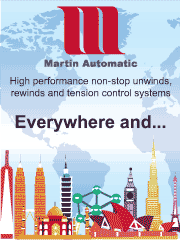Plastics society urges repeal of Clean Air Act provisions
- Published: October 01, 1995
In testimony before the House of Representatives in July, the Society of the Plastics Industry (SPI) stated that Clean Air Act provisions requiring companies to develop air emissions standards for plant modifications are unnecessarily burdensome and should be repealed.
Speaking on behalf of SPI, Michael Seymour of Lasco Products Group told members of the Commerce Committee Subcommittee on Oversight and Investigations that sections 112(g) and 112(j) of the act are "well-intentioned" but have a punishing rather than regulating effect. Since other provisions of the Clean Air Act ensure that air toxics emissions will be well-controlled, these sections achieve little environmental benefit at a great cost to the facility and the state permitting authority, he said.
Section 112(g) of the act requires anyone who modifies, constructs or reconstructs a major source facility that emits hazardous pollutants, or HAPs, to ensure the facility achieves MACT (maximum achievable control technology) emissions limitations, regardless of whether a MACT standard has been promulgated by the Environmental Protection Agency (EPA). If no MACT standard has been promulgated, the facility must develop a case-by-case MACT standard.
Section 112(j) requires facilities to file an application for a Title V permit or for a significant modification of its previously issued permit, containing emissions limitations based on a case-by-case MACT determination, if EPA fails to promulgate a MACT standard by the date established by the agency.
According to SPI, EPA is behind schedule on MACT standards that were due to be released in November 1994, and work on standards due in 1997 and 2000 has been postponed.
"Sections 112(g) and (j) have the effect of shifting the burden of developing MACT standards from EPA, whose obligation and expertise it is to set standards, to a facility whose primary function is to produce materials for sale," Seymour testified.
He also noted that a facility has no guarantees that the MACT standard, when promulgated by EPA, won't be more stringent than the case-by-case MACT developed by the facility.
SPI argues that 112(g) hurts industry by hindering flexibility in responding to current market demands. Companies facing the expense and complexity of developing a standard may be reluctant to expand facilities or build new ones, the organization predicts, threatening employment and hampering economic growth. Small companies that lack the technical, economic and pollution control expertise to develop a MACT standard would be hardest hit, according to SPI.
The July hearing before the House was one of a series being conducted by the subcommittee to examine issues relating to the implementation of the 1990 Clean Air Act.
* Bronze Powder Use - The Label/Packaging Suppliers Council has released the results of its investigation into the environmental and occupational health effects associated with the use of bronze powders in the printing industry.
Bronze powder, used for decorating labels, greeting cards and other printed products, has come under fire over concerns about its environmental and health status.
"The intent of this report is to provide an effective tool for printers and their suppliers to use in discussions with employees, customers and governmental agencies relative to the use of bronze powder," says Richard E. Drong, Sun Chemical.
The project, spearheaded by Dr. Harold A. Hughes, a professor at the School of Packaging at Michigan State University, was sponsored by Obron Atlantic, Painesville, OH; Lawson Mardon, Elmsford, NY; St. Louis Lithographing, St. Louis, MO; and Label Printing Industries of America.
For more information or to obtain a copy of the report, contact Betty B. Horn, L/PSC Executive Administrator, 4509 Willet Dr., Annadale, VA 22003. 703/323-1790; fax: 703/425-7462.
* Recycling Expansion - Port Townsend Paper recently announced plans to construct a $27-million pulp facility that will recycle old corrugated containers at its mill in Port Townsend, WA.
"The future of our industry is in recycled products," explains company president Ted Swain. "Recycling is environmentally sound, and the market will increasingly demand it. Wood chip supplies are diminishing, and we have the technology to make quality products out of secondary fiber."
Construction of the plant, which represents the second largest investment at the mill in the past 10 years, began in late July. It is expected to be completed in mid-1996.
The new plant will produce 300 tons of pulp per day, about half of the company's total daily output. The recycled pulp will be blended in varying amounts with virgin fiber pulp to produce paper and market pulp.
"The end product will look no different from that produced from all-virgin fiber," according to Swain. "We may also look at producing other kinds of products from the recycled pulp. We could be producing all our paper totally from recycled materials by 1998."












